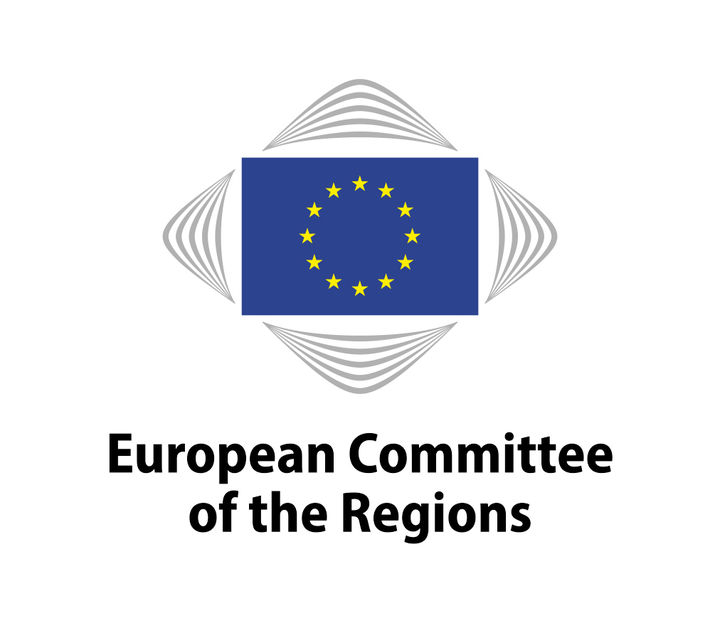 Homepage CASE
Homepage CASE
Selected values

Capacity building for local and regional authorities in the light of the Ukraine Facility (Pillar III)
-
Date:
12 Sep 2024 - ongoing
-
Client: European Committee of the Regions :

-
Project leader: CASE – Centre for Social and Economic Research :
-
Partner: IEMed – European Institute of the Mediterranean public Consortium :
-

Agnieszka Kulesa
Specialist in Social Sciences
Agnieszka Kulesa has been working at CASE since 2018. She specialises in the labour market, international labour migration, and migration policies within and outside the European Union.
Projects from this author:
-
FUTURE FOR ALL – Advancing Cross-Generational Collaboration through Futures Literacy (FFA)
The primary objective of the “FUTURE FOR ALL - Advancing Cross-Generational Collaboration through Futures Literacy (FFA)” project is to encourage active participation of citizens in the life of their respective neighborhoods with a specific emphasis on promoting intergenerational cooperation. The project addressed to elderly and youth residing in youth sociotheraphy centres (and the educators of the respective groups) identifies specific objectives: Face social problems between generations and contributing to lifelong learning Fight stereotypes, improve mutual knowledge and understanding Transfer of knowledge between Norway and Poland, and exchange of experience in applying futures thinking tools in working with intergenerational group Equip seniors and (socially maladjusted) youth with Futures Literacy tools to help them achieve developmental goals for their life stage Raise awareness of the local environment and a sense of responsibility, and agency to improve it To achieve these goals, the project intend to leverage the innovative approach of Futures Literacy to empower and engage the two crucial demographics. Futures Literacy is a concept and methodology developed by the UNESCO that presents an altered perspective on how to perceive and engage with the future (UNESCO, n.a.). It is a cognitive skill and a framework designed to enhance one’s capacity to comprehend, navigate and shape the complex and uncertain nature of the future. Apart from Futures Literacy approach the project will use additional activities designed to address key issues and encourage intergenerational collaboration such as: anti-stereotype and integrational workshops to provide a platform for both generations to openly discuss and challenge stereotypes that may hinder effective collaboration and understanding Urban Game Design: The elderly will take the lead in designing an urban game for the youth, offering them an opportunity to explore and connect with the city they know from a different perspective Planting activity: A shared activity of planting flowers will be organised to foster active citizenship and environmental awareness among the groups. Intergenerational trip: Organisation of a day trip to a museum or a concert chosen by either the elderly or the youth hold immense potential for interesting experiences among the participants The activities planned in the project support intergenerational cooperation, leverage the strengths of different age groups, creating a synergy that is particularly relevant in the context of modern world. By promoting understanding, collaboration, and mutual support among generations we can collectively adapt to and address the complex challenges of today’s rapidly changing world. The project will also strengthen bilateral cooperation between Poland and Norway in the area of building social capital in local communities. It will be achieved by a Polish and a Norwegian organisation that will combine their experiences in supporting active citizenship in their various environments and by using their different areas of expertise. Funding: Fund for Bilateral Relations, hereinafter referred to as the “FBR” the European Economic Area Financial Mechanism 2014-2021 and Norwegian Financial Mechanism 2014-2021 Project Leader: CASE Project Partner: Fremtenkt
-
Study on affordable sustainable housing in the EU
The study will contribute to the reflection on possible policy solutions to affordable sustainable housing in the EU, by examining a number of initiatives taken at (sub)national level innovating in the field of housing and determining how these could be relevant in a European context. The current challenges surrounding the availability of affordable and … Continued
-
Rural areas and the geography of discontent
EU skepticism, anti-EU votes in EP, and national elections have increased over the past 10 years, mainly driven by a combination of long-term economic and industrial decline, low levels of education, and lack of local employment opportunities. Rural areas are often characterised by a combination of these factors. The goal of the project commissioned … Continued
-
FUTURE FOR ALL – Advancing Cross-Generational Collaboration through Futures Literacy (FFA)
-

Oskar Chmiel
Oskar Chmiel holds a PhD in Social Sciences with a specialization in Political Science from the University of Wroclaw. He is particularly interested in the political and social aspects of international development cooperation, migration, and trade. Prior to joining CASE, Oskar gained experience working, among others, as an intern at the Polish Centre for African … <a href="https://case.dev10.pro/project/capacity-building-for-local-and-regional-authorities-in-the-light-of-the-ukraine-facility-pillar-iii/">Continued</a>
Projects from this author:
-
In search of mechanisms linking the pseudo-causal narratives and policy outcomes: the case of the Trade-Development-Migration nexus in the EU’s approach towards the countries of its Southern Neighbourhood
The project will examine what causal mechanisms link the pseudo-causal policy narratives and policy outcomes in the European Union’s trade-development-migration nexus (hereafter, T-D-M nexus), and how they do it. To address this question, the project will focus on the narratives about addressing the root causes of migration through trade and development cooperation, produced by … Continued
-
How to eradicate skills poverty among the most vulnerable?
In a context of changing labour market needs due to the green and digital transitions and the still gaping skill divides across society, the European Commission proposes a number of actions ‘to give a fresh impetus to lifelong learning’. This includes ‘Promoting increased, and more effective and inclusive investment in training and upskilling to harness … Continued
-
Study on Energy policy and the labour market: consequences for employment in regions undergoing energy transitions
The different legislative proposals in the ‘Fit for 55’ package mean a dramatic shift of employment in certain regions, either dependent on raw materials for power generation (such as coal mining), directly linked to its generation (power plants, refineries, etc.) or with carbon-intensive industries that are forced out of business. Given the increasingly urgent need … Continued
-
In search of mechanisms linking the pseudo-causal narratives and policy outcomes: the case of the Trade-Development-Migration nexus in the EU’s approach towards the countries of its Southern Neighbourhood
-

Andrzej Robaszewski
Andrzej Robaszewski is Director of Fiscal Policy Studies and Sustainable Development. His areas of expertise also include EU economic governance, energy markets and ESG.
Projects from this author:
-
The challenges of VAT beyond VAT in the Digital Age
This study should consider possible improvements to the EU VAT system and assess their feasibility and likely consequences, based on the analysis of its current weaknesses, gaps, inefficiencies. As requested by the ToR, this requires a forward-looking analysis and prospective reflection, combined with and based on the retrospective assessment of the current situation. The study requires, on the one side, a thorough re-assessment of well-known problems of the EU VAT systems, which have been discussed for years by policymakers, scholars and in courts and tribunals, the solutions to which have already been long proposed in the academic as well as policy arena. On the other side, it requires a fresh view to identify new solutions to old problems, new problems and their possible solutions, as well as potential unknown problems, i.e. those that may appear in the future given the current economic, political and legal evolution and the megatrends of the EU and global society. Operationally, the activities needed to achieve the objectives of the study are straightforward. For each of the areas or angle of analysis, the study team will have to: Identify existing weaknesses and challenges of the EU VAT system, including those that may appear in the future given the likely evolution of the current situation. Design solutions to the problems identified. Assess the feasibility and consequences of the solutions identified.
-
VAT gap in Europe – report 2025
The study's primary objective is to collect and supply economic information from existing official economic and statistical databases, as well as to gather primary data from national authorities. The study will also conduct macroeconomic analysis for country-specific VAT compliance and policy gap estimations and the impact of the coronavirus pandemic. Moreover, the study will include up to five case studies on specific countries and/or topics, to be proposed by the contractor in their technical offer. Geographically, the study will cover all EU Member States, subject to quality checks for data reliability and robustness. This includes coverage of the United Kingdom during its time as an EU Member State. In addition, the study will test and implement, where possible, the inclusion of EU candidate countries and possible candidate countries, except for Türkiye. These countries include: • Albania, Montenegro, North Macedonia, and Serbia1 (candidate countries at the stage of accession negotiations); • Ukraine, Moldova, and Bosnia and Herzegovina (Candidate countries for which the Council has decided to open accession negotiations); • Georgia (candidate country); • Kosovo (potential candidate country). The study's temporal scope will cover primarily a 6-year period, comprising: • a comprehensive review and revision of ‘full estimates’ for the first four years, i.e., for 2019-2022; • a new ‘full estimate’ for the fifth year, i.e., for 2023; • provisional ‘fast estimates’ for the sixth year based on simplified methodology for 2024. In addition to the 6-year coverage, the study will provide a historical context by reporting on VAT compliance gaps from 2000 onwards, and VAT policy gap estimates, including its components, from 2016 onwards. This will provide a comprehensive timeline of these indicators. The study will also include a review of the economic and policy context, also including an outlook beyond this 6-year period.
-
Wealth taxation, including net-wealth, capital and exit taxes
The study aims to provide further information regarding the uptake and economic consequences of introducing wealth-related taxes. The purpose of the study is to shed further light firstly into recurrent wealth related taxes by (i) reviewing the conditions for the implementation of a net wealth tax and its consequences, to provide a detailed literature review on recurrent capital taxes in the EU and analyse their economic consequences; and secondly (ii) to provide an overview of existing non-recurrent wealth related taxes, namely, by providing an overview of capital taxes, inheritance and gift taxes and the existing exit tax provisions in the field of personal income taxation (including relevant statutory references), and how these interrelate with and complement the legal framework of taxing net wealth and capital gains. The study builds on previous research work mapping wealth taxes and estimating the consequences of their introduction. It is structured along two parts comprised of two and three workstreams respectively, related to the topics outlined above. Part 1 – Recurrent taxation, Workstream 1 – Net wealth taxes Part 1 – Recurrent taxation, Workstream 2 – Capital taxes Part 2 – Non-recurrent taxation, Workstream 3 – Capital taxes Part 2 – Non-recurrent taxation, Workstream 4 – Inheritance and gift taxes Part 2 – Non-recurrent taxation, Workstream 5 – Exit taxes
-
The challenges of VAT beyond VAT in the Digital Age
-

Katsiaryna Kasykh
Katsiaryna Kasykh is an experienced project and program and manager with over 18 years of expertise, specializing in territorial and cross-border cooperation program and project management, territorial marketing, ecology, sustainable development, area-based development, and humanitarian aid projects. She has successfully implemented numerous social and humanitarian projects, combining her skills in strategic planning and management with a deep commitment to fostering collaboration across regions. Ms. Kasykh holds a MA degree in Management and Economics from Brest State Technical University and a postgraduate diploma in Customs Law from Belarusian State University. For over 15 years she was on managerial position in NGO Sector in Belarus. Her professional background includes leading roles in designing and managing large-scale initiatives funded by local and international donors (incl. EU, UN,UNDP, UNHCR,USAID), with a focus on environmental issues, sustainable development, and community-led projects. Additionally, Ms. Kasykh has extensive expertise in Eastern Partnership programs, working on cross-border cooperation strategies and contributing to regional development initiatives. Her work in developing regional development strategies, overseeing cross-border cooperation programs, and delivering impactful area-based development projects demonstrates her ability to create solutions that address complex regional challenges while promoting ecological and social sustainability.
Projects from this author:
- Russian fiscal space: in-depth analysis of Russian public debt, constraints to medium-term sustainability and macroeconomic consequences
- Updating the CoR material on the Division of Powers
- Cancer: repository of regional prevention and detection policies
Related projects
Thanks for joining us!
You're now part of a community that values [your newsletter's focus]. Get ready to stay informed, inspired, and engaged with our carefully curated content.
